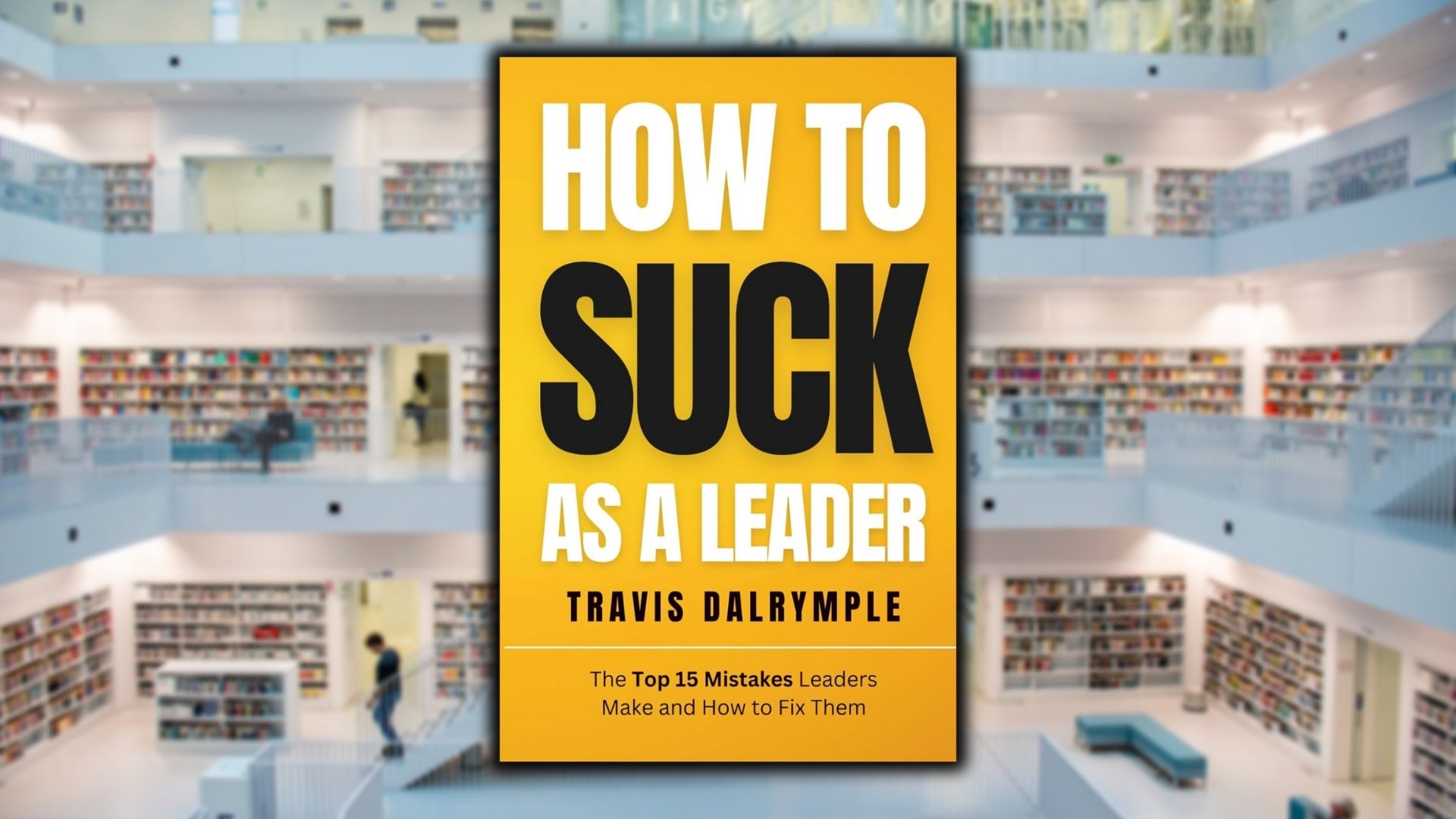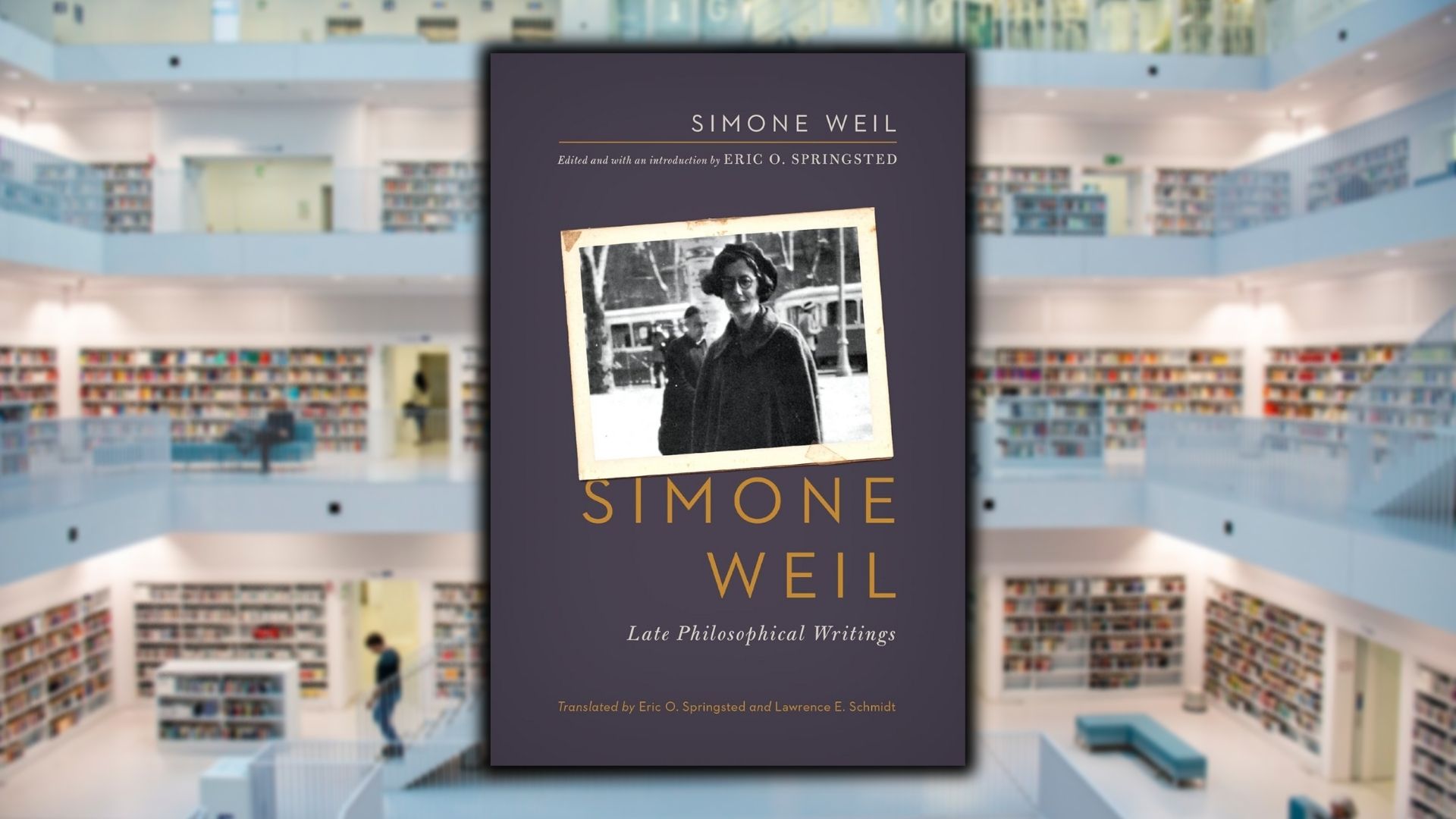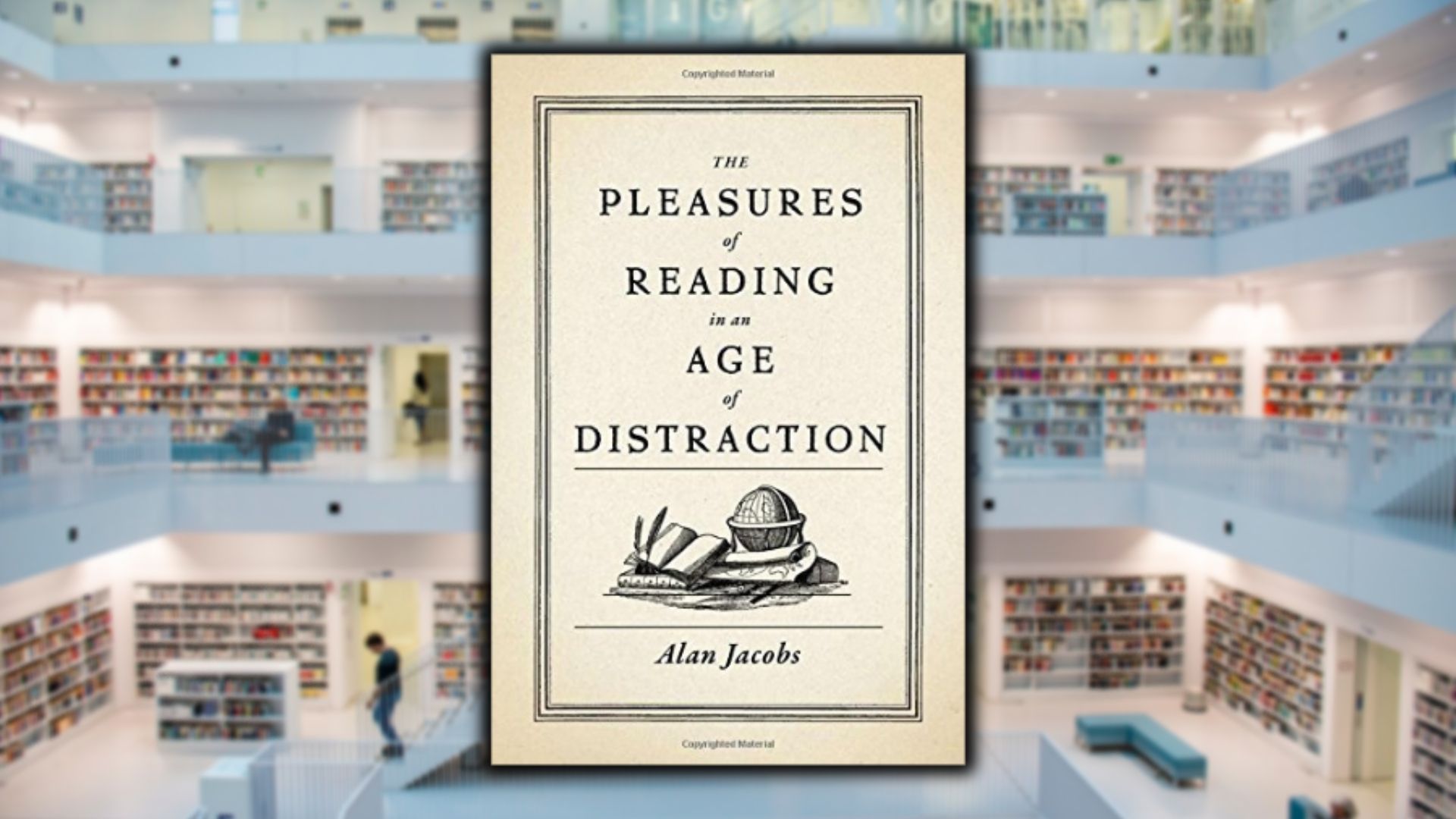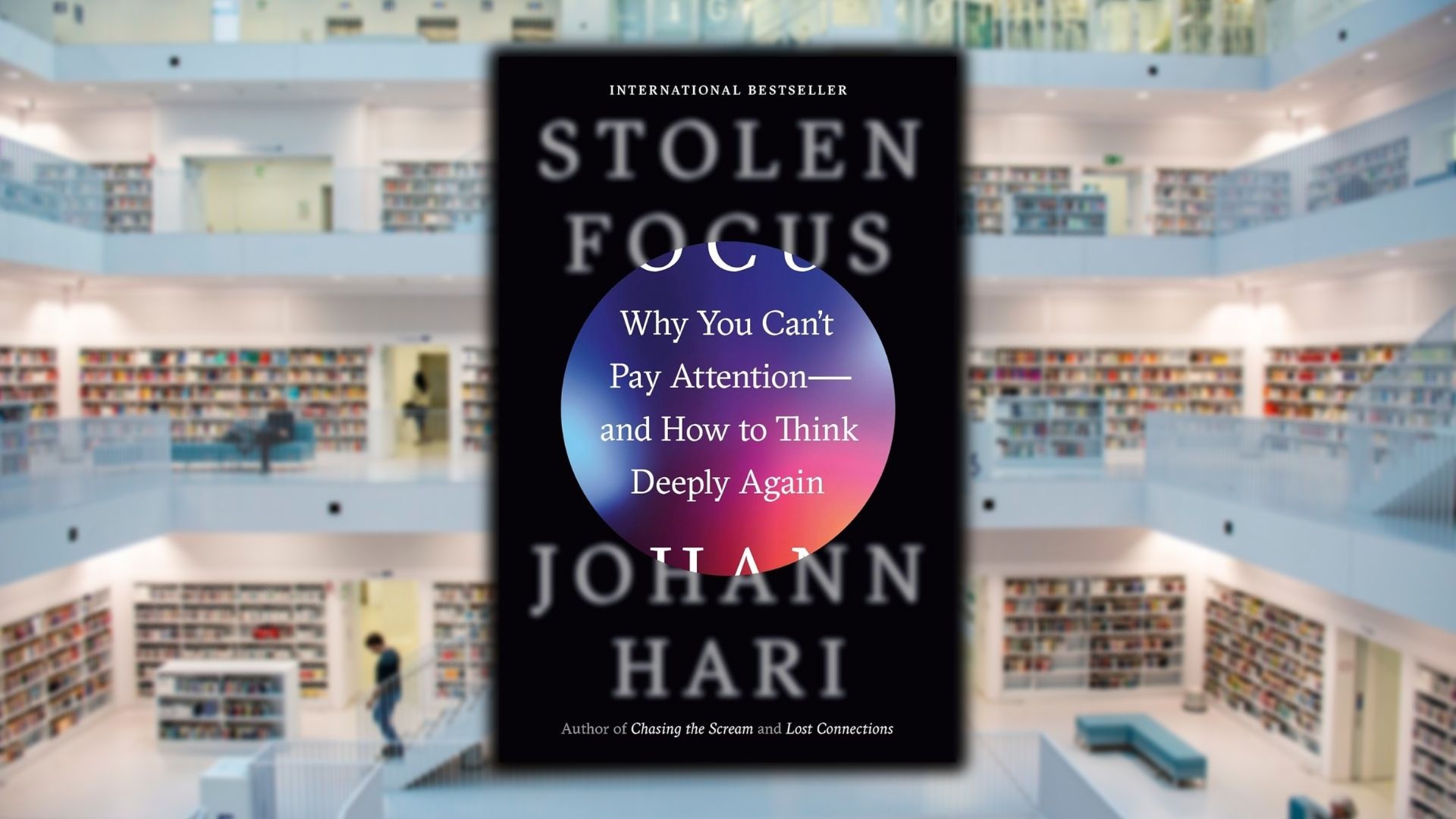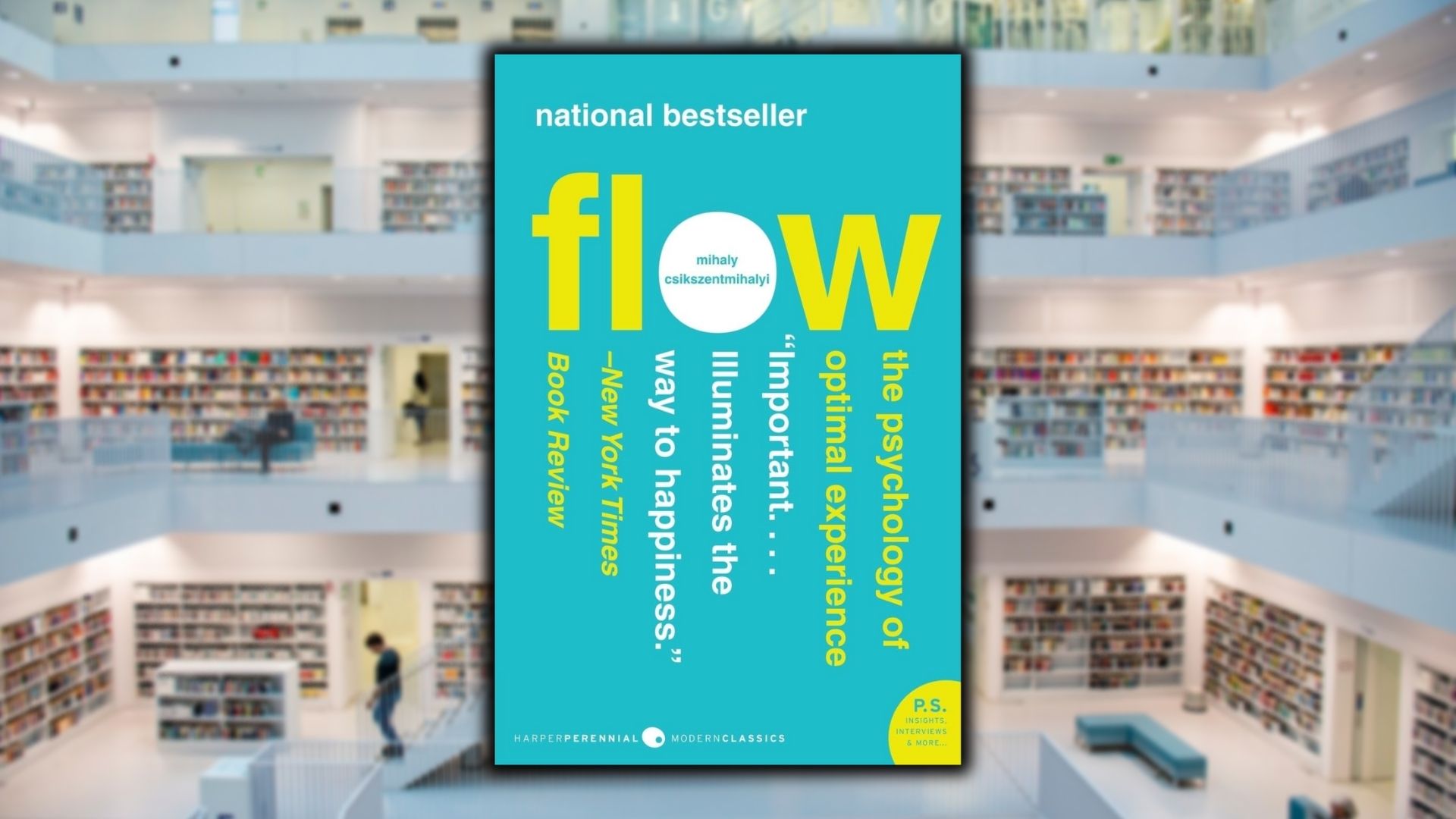There isn’t a distraction, a cat video, or a meme in the world that’s a match for any of these 10 books. You don’t have to read all 10, of course, but if you do, you could probably win a staring contest with the Dalai Lama. They’re that powerful.
As usual, all my book notes and summaries are below, including a list of each book so you don’t have to go scrolling through the whole thing. Because it’s a long one today!
New YouTube Video: I Saved These 8 Books from Certain Destruction
Lastly, I’d also like to introduce you to my friend James Carran, who publishes a brilliant newsletter called The Write Way.
James isn’t “just” a writer. He is a craftsman. A wordsmith if there ever was one, and someone who’s passionately dedicated to the art of writing. But he’s also pragmatic about getting paid for writing, and his newsletter will help you do just that.
When you subscribe, you’ll also receive a free course to improve your writing, spread your message, and increase your impact.
I’m subscribed already, and now I’m recommending The Write Way to you.
And now, before our coffees get cold…let’s read!
Tonight, Inside The Reading Life, We’ve Got:
“The evil that is within us is finite, as we are. The good by whose help we fight it is outside us and is infinite. Therefore it is absolutely sure that evil will be vanquished.”
“I have literally never seen a persistent, hardworking businessperson, artist, or athlete permanently fail. Never. Their plans may have worked out differently than they had foreseen. They may have had to make serious adjustments in life. But they were delivered to some sense of satisfaction and achievement.”
Inside my private business mastermind, Creator Launch Academy, we’re tackling one nonfiction book per week and implementing its lessons inside our businesses.
This week’s book is The Miracle of a Definite Chief Aim, by Mitch Horowitz, a great book about centering your life (at least this season of your life) around a large-scale, life-enhancing, meaningful, and challenging purpose. Click here to claim your free trial, and join our business book club for educational content creators!
After achieving my (somewhat meaningless) goal of reading 1,000 books before I turned 30, I set a new (also meaningless but cool) goal of reading 10,000 books. As of today, I’ve read exactly 1,401 books, including 49 books so far this year, and if you’re interested, here’s my full Reading List.
“All I could think about was all of the knowledge I lacked. Especially after feeling cheated by the conventional resources that were supposed to secure my future.
I spent my days absorbing all the information my focus could handle on fitness, finance, attraction, and perspectives of meaning, happiness, and fulfillment. Consciously experimenting with the best teacher I could find - my own mind, body, spirit, and business.
Through countless bouts of trial and error, a decade of compounding returns on focus, and eliminating the possibility of failure from my mind, I have built something I am proud of: a life of meaning, money, and mastery.”
This book is the definition of “not for everybody,” but for the right person, it could be absolutely revelatory. Life-changing. A complete “Before and After” separating your old self, your old way of life, and the way you’ll live forever after.
The Art of Focus is a philosophy book, disguised as a personal development book, disguised as a business book. It’s directed more or less at creators who are looking for a way to monetize their minds and earn a full-time living producing meaningful work and distributing it online.
But virtually everyone could find something life-changing inside, and it contains layers and layers of meaning that each speak directly to where people currently are on their journey from mental slavery to conscious freedom.
If I’m being a bit vague here, allow me to set the scene a little more. Look around you, and you’ll see that most people (at least many people) are desperately unhappy, desire to make radical changes in their lives, and yet are unsure precisely how to do that.
Dan Koe argues that we’re living in a dystopia of excessive pleasure, comfort, and a false sense of security when it comes to what lies ahead, both individually and collectively.
Every single day, there are literally thousands of marketing messages being launched straight into your prefrontal cortex, each of them demanding your attention. In other words, demanding a little piece of your LIFE.
Eventually, what happens to most people is that they don’t know who they are anymore, or what they really want. They’re told what they want, and they believe it. Personal agency is a distant memory, and the default path is all that’s left. Wage slavery, mental slavery, and debt slavery, if not actual slavery.
The way out of this meaningless hellscape (oddly comfortable and “safe” though it may appear to be), lies in taking the path of the Creator, as opposed to the Consumer.
We all consume sometimes, of course, but if your entire life revolves around consumption, and you only watch, read, and talk about what everyone else watches, reads, and talks about, you’ll only be able to think what everyone else is thinking.
Your individuality - the very essence of who you are - will be stripped away, and you’ll barely even realize that it’s gone.
If you don’t want the same quality of life as everyone else (and I’d argue that you don’t!), then focus is the cure. Yes, “focus” in the sense of being able to pay attention to something longer than a beer commercial, but also in the sense of being able to separate action from distraction, meaning from meaninglessness, and success from failure.
For a long time now, I’ve rejected the future that was just “assigned” to me by society on the date of my birth: get good grades, go to college, work for forty years, collect gold watch, die. I already knew there was more to life before I read this book. But it gave me a sense of urgency, and personal power that was…electric.
Here was Dan, living free and uncommitted - except to his purpose. Living consciously and intensely, following his own curiosity, earning hundreds of thousands of dollars per month doing so.
I was already a full-time creator myself, having struggled for years to “make it,” and now I just had this renewed sense that even more was possible, and that my future was wide open.
Decades and decades of my life opened up right in front of me, and I knew that I’d never go back to my old life for as long as I lived. The Art of Focus was my point of departure into my most exciting future.
“From start to finish, the basic neurological principle – ‘Use it or lose it’ – is true for each deep-reading process. More important still, this principle holds for the whole plastic reading-brain circuit.
Only if we continuously work to develop and use our complex analogical and inferential skills will the neural networks underlying them sustain our capacity to be thoughtful, critical analysis of knowledge, rather than passive consumers of information.”
Humans were never meant to read.
No child is ever born with a gene that directly leads to literacy; the reading circuit has to be intentionally, rigorously cultivated, especially in the early years, and nothing about that process is guaranteed.
The ability to read these words is nothing short of a miracle, and you're witnessing it right now in this very moment.
The human brain - this amazingly, vastly complex thing, this technology that you carry around in your head all day - somehow finds a way to connect the functions that already exist, like vision, language, pattern recognition, and more, and combines them in such a way that you're able to follow this sentence and decode its meaning.
Because the ability to read doesn't develop unless it's actively and effectively taught, the brain of a reader has completely different wiring from that of a non-literate person, with implications that follow a person throughout their entire lifespan.
In this book, Reader, Come Home, neuroscientist Maryanne Wolf traces the development - or lack thereof - of the reading circuit and extends her research into questions of what will happen to us as we shift from a literacy-based culture to a more digital one.
The demands of the digital world engage our brains differently, and it's become clear to researchers like Dr. Wolf that the medium(s) in which we read shape how we read, and encourage or discourage the expert analytical and reading skills that are desperately needed today - by everyone.
“The world doesn’t need fewer readers.”
In this book, Alan Jacobs says everything about reading that I’ve always wanted to say about reading, and I think it might feel like as much of a relief to you as it was to me when I first read it.
First off: not everybody reads books...and that’s totally cool. I mean, books completely and totally changed my life for the better, but I don’t think any less of anyone who doesn’t read as many books as I do, or hasn’t read some particular book that snobs think everyone “should” read.
There’s always going to be someone smarter than you, or someone who’s “better-read” than you, but people read for different reasons, they’re further ahead or behind in their own personal reading journeys or what-have-you, and that’s why it was so refreshing to hear Alan Jacobs say that it’s perfectly alright to quit books that you’re not enjoying, and that reading should never feel like an obligation!
The Pleasures of Reading in an Age of Distraction takes a lot of the pressure off of people to tackle these ridiculous “100 Books You MUST Read Before You Die If You Want People to Think You’re Smart and Come to Your Funeral” lists or whatever. It’s all nonsense, and Jacobs exposes it for the nonsense that it is.
As he says, the world doesn’t need fewer readers, so if books have ever even once ignited your curiosity or your passion, then you have to do whatever it takes in order to keep that fire alive. That’s what’s most important, not which books you’ve ticked off of some list.
The Pleasures of Reading in an Age of Distraction covers a lot of other ground too. For instance, Jacobs refutes the idea that “nobody reads anymore.” His book is part confidence-builder, and part tour of the reading life as populated by millions of eager readers, hundreds of massive bookstores and thousands of smaller, independent bookstores, numerous book clubs, etc.
He also discusses the rise of reading on electronic devices, the rise of silent reading (I just assumed that people had always read silently, but apparently not, for reasons that are obvious now that I’ve read his book), the benefits of re-reading books you’ve already read, etc. There’s a lot here.
Overall, the tone of Jacobs’ book is warm, supportive, and encouraging, and as I said, I think it’s one of the best books of its kind out there, one that can bring together readers of all genres and ability levels.
Jacobs would also agree with Mortimer J. Adler (author of the admittedly somewhat stuffy tome, How to Read a Book), that the point of reading isn’t how many books you can get through, but how many of them can get through to you.
“I went to see the Mona Lisa in Paris, only to find she is now permanently hidden behind a rugby scrum of people from everywhere on earth, all jostling their way to the front, only for them to immediately turn their backs on her, snap a selfie, and fight their way out again.
On the day I was there, I watched the crowd from the side for more than an hour. Nobody - not one person - looked at the Mona Lisa for more than a few seconds."
This important book demands the kind of attention and deep, nuanced thought that we as individuals and as a society are becoming less able to devote to anything.
In Stolen Focus, Johann Hari investigates 12 distinct causes of our dwindling attention spans - several of them systematic causes - and offers a degree of hope, even though none of us are able to win the battle for our attention alone.
Perhaps one of the most important takeaways from the entire book is that your increasing inability to focus is not completely your fault, and believing that it is a personal failing of yours is simply unhelpful in the very worst way.
The fact is that you and I are living within a society that is systematically siphoning off our attention, and as valuable as self-discipline is, it's not going to be enough to solve what Hari calls "the attention crisis."
And it really is a crisis. I mean, you've got the average American worker being distracted roughly once every three minutes, and even the average CEO of a Fortune 500 company gets just twenty-eight uninterrupted minutes a day. A day!
The reality is that today, around one in five car accidents is due to a distracted driver, and untold millions of people struggle every day with the simple act of putting down their phones.
But it's not their fault, says Hari, because every time they (and you) try to put down their phones, there are a thousand software engineers on the other side of the screen working against them.
What kind of personal will or self-discipline can stand alone against all that?
So, it's obvious that our ability to pay attention is collapsing, but Johann Hari was determined to find out why this is happening.
In the process of attempting to reclaim his own mind and his own ability to focus, he ended up interviewing a multitude of experts - computer scientists, social scientists, educators, psychologists, neuroscientists, technologists, etc. - and the result is this impeccably researched and insightful book.
My unsolicited advice is that you put down your phone for long enough to read it.
“The central premise of this book is that impossible has a formula. Whenever we see the impossible become possible, we are witnessing the end result of a quartet of skills - motivation, learning, creativity, and flow - expertly applied and significantly amplified.”
Nothing that’s ever been achieved by another human being has ever been supernatural - it just seems that way, and The Art of Impossible breaks down the psychology, neuroscience, and structure of how those people did it.
The “secret” of impossible performances, says Kotler, isn’t related to genetics, talent, luck, or any other mystical factor. It’s simply neuroscience plus structure.
Brain chemicals, all lined up in a specific way that helps human beings achieve elite levels of performance, plus the disciplined pursuit of excellence for an extraordinary length of time.
The four core elements of elite performance that Kotler identifies include Motivation, Learning, Creativity, and Flow, and each of those elements can be trained.
When you create the conditions for them to occur, they show up naturally; it’s just that most people don’t seem to be interested in putting in the requisite amount of effort to appear supernatural.
Achieving the impossible is incredibly, insanely, ridiculously hard.
It takes a long time, it’s uncertain, you’ll doubt yourself, everyone else will doubt you, you’ll get lonely, you’ll reach stages of exhaustion you never knew existed…and yet, if you push through, if you persist, you’ll emerge into the kind of rarified air reserved for the best of the best at what they do.
You will have succeeded in pulling the stars down to earth, which is what The Art of Impossible will help you believe is possible.
“The ability to perform deep work is becoming increasingly rare at exactly the same time it is becoming increasingly valuable in our economy. As a consequence, the few who cultivate this skill, and then make it the core of their working life, will thrive.”
Professor Cal Newport introduced an entirely new term into the global conversation with this book, Deep Work, by which he refers to the ability to focus without distraction on a cognitively demanding task.
As opposed to “shallow work,” which would include things like responding to emails, formatting social media posts, etc. The former produces a body of work that will launch your career to new heights, and the latter produces…nothing.
At least nothing of substance.
Deep work is a skill that allows you to quickly master complicated information (which is basically the price of entry today, professionally), and produce better results in less time.
It sets you apart from virtually everyone else you’re competing against, and who are gradually losing their ability to concentrate for longer than a cat video.
Given enough time, it’ll put you so far ahead professionally that it will be impossible ever to catch up with you.
Ideally, you’d want to spend as much time per day engaged in deep work as possible, though the upper limit thought to be achievable for most people is around four hours per day. And even then it’s something that you’ll likely have to work up to. But it’s worth it.
What deep work looks like in practice is having all of your smartphone notifications turned off, putting a “Do Not Disturb” sign on the door to your office or workspace, closing every tab that doesn’t contain the masterpiece you’re working on right now - and only that one masterpiece - and dedicating as much time as possible to the accomplishment of the highest-quality work of which you’re capable.
The ability to do this is rare, of course, and because it’s so rare, it’s also exceptionally valuable. When no one else can do what you do, you get paid more than anyone else does.
Newport also presents a rigorous training program in the book that will help you build up your “deep work” muscles, a training program that most people just won’t have the stamina or the desire to complete.
By definition, deep work is difficult. Most people simply aren’t able to do it - at least not for any significant length of time.
But if you can, it will work to your extreme competitive advantage, allowing you to dominate, demolish, and destroy your competition: those brainrot victims who can’t manage to tear themselves away from their phones long enough to look up and realize that you’ve lapped them.
“Setting a goal brings clarity to our desires and gives direction to our thoughts and actions, even when we aren’t consciously focusing on it. Our intent remains active in the back of the mind, influencing our choices and setting us up for success.”
Okay, so this isn’t the most riveting self-improvement book out there, but it’s extremely actionable and it could be a tremendous help in stimulating your willpower, focus, concentration, and productivity. What it lacks in page-turn-ability, it more than makes up for in practicality, is I guess what I’m saying!
Hollins is a prolific writer with a number of Amazon bestsellers, and he’s known for writing self-help manuals packed with science-backed tips and advice.
In this book, it’s all about self-discipline, willpower, getting more done, jacking up your focus, etc. It’s also quite short, so it’s not like you’ll have to sludge through some giant textbook.
Just take what you need, apply it, watch your life get a bit better, come back for more, and repeat.
You don’t have to read this one front to back, although I did. Instead, you could view my notes and see if you want a more fully fleshed-out explanation of any or all of these ideas, tactics, and strategies for effortless focus, deep concentration, and high performance.
“Of all the virtues we can learn, no trait is more useful, more essential for survival, and more likely to improve the quality of life than the ability to transform adversity into an enjoyable challenge.”
Flow is one of those foundational psychology books, revolutionary at the time, that holds the key to understanding everything from creativity, productivity, happiness, meaning, and purpose. Flow states are associated with all of those things, and this book is about how to bring more of this genuinely satisfying state of consciousness into your life.
Csikzsentmihalyi (and you will not spell his name right until approximately your 100th try) was an academic researcher, and so much of the book is fairly technical, but it’s also thoughtful, deep, extraordinarily practical, and applicable to virtually everyone on earth.
He’s not just writing for other academics; he’s more or less uncovered one of the secrets of sustained happiness and purpose, and his joy in sharing it comes across really well throughout the book. It’s not the most epic page-turner I’ve ever read, but he makes at least an in-good-faith attempt to make it entertaining and accessible.
“Flow states,” those times when we are fully and completely engaged in what we’re doing, lose track of time, and experience a near-total immersion in the moment as it unfolds, don’t just “happen.” There are preconditions that must be met, prerequisites that need to be present in order to enter a flow state. Or make entering a flow state more likely.
These include: engaging in an activity with a clear purpose, one that’s meaningful and/or interesting to you, and one that’s near the limit of your abilities, without exceeding them. Too challenging and you get frustrated (no flow), too easy and you get bored (no flow).
Retiring from all work, never struggling to achieve anything worthwhile, and letting your skills and abilities atrophy from lack of use is psychological death to human beings. Sitting on a beach for forty years with nothing to do is likely a fate worse than death.
No, you want effortful striving; a goal; something that challenges you, that calls upon the very best that’s within you.
That’s where the majority of meaning can be found on this earth.
You’ll also find that what you pay attention to becomes your life.
Shaping and controlling the contents of consciousness is the key to a meaningful life, and Flow teaches you how to do just that. But again, it’s not just going to “happen.” You have to, well, consciously direct your attention and give your absolute best effort to something that lights you up.
Take care of that, and flow generally ends up taking care of itself.
“You think you know who you are and what you are; but you do not know either what slaves you now are, or how free you might become.”
George Ivanovich Gurdjieff was one of the most charismatic, enigmatic, powerfully self-possessed mystical teachers of the 20th century, and this book is a short introduction to his life and work. Gurdjieff taught that most humans exist in a state of "waking sleep," where they remain unaware of their infinite potential and ultimate value as human beings.
Colin Wilson believed that most human beings are like great big and powerful jet airplanes attempting to fly on just one engine. That is, we possess vast lakes of "vital reserves," or extra energies that we habitually fail to call upon.
So if you feel as though there is something missing in your life, that the world is more gray and bleak than it could be or should be, then you're beginning to wake up.
So this whole book is about getting that process started. It's about the effort to attain self-knowledge, and the super-effort that full aliveness may require.
It's about abandoning destructive habits and automaticity, and about keeping the mind awake. It's about firing up all the engines.
This philosophy is about kicking everything about your life into high gear, but nobody is claiming that it's going to be easy. To realize how powerful we are, and how alive we can be, however, is to effect a revolutionary alteration in human consciousness.
It really is like waking up.
“We spend a lot of time looking for happiness when the world right around us is full of wonder. To be alive and to walk on the Earth is a miracle, and yet most of us are running as if there were some better place to get to. There is beauty calling to us every day, every hour, but we are rarely in a position to listen."
You don't have to go all the way to Antarctica to find silence, but Erling Kagge did.
Way back in 1993, he became the first person to walk to the South Pole, solo. The airplane company that dropped him off insisted he take a radio with him, but he dumped the batteries in the trash before leaving the plane.
Over the next 50 days, he would experience the most profound silence of his life to date.
We don't have to take the same sort of radical action as Kagge did, but we do have to realize that the modern world isn't going to just give us the silence that we crave.
Many times, we're going to have to consciously create these rejuvenating moments of silence, and protect them from incessant intruders such as email notifications, IMs, DMs, Netflix trailers, and ceaseless crowd noise.
In a sense, silence is becoming a new type of luxury, in the same way that sleep and time are becoming luxuries. It's actually difficult to imagine that one has control over one's life if silence, sleep, and time is scarce. Achieving this control over your life starts with limiting toxic inputs, and with controlling what you let into your mind in the first place.
Of course, you have some control over this, but hardly complete control. Just do the best you can to limit the negative influences that seep into your life through your senses.
You do this via a conscious process of actively choosing your inputs: reading a book like Silence, rather than a gossip magazine; or phasing out that friend of yours who just complains all the time.
In his book, Kagge builds a strong case for silence, and he convinces, eloquently, that silence is essential for listening and communicating at all.
Part of the impetus for writing the book was that his three teenage daughters didn't spend much time without an electronic device attached to some part of their bodies. And indeed, Kagge says that before you can listen deeply to someone else, you have to be able to listen deeply to yourself.
It might even be argued that sitting in silence, listening deeply, and guarding against negative inputs are all moral imperatives, in that their absence leads directly to some of the worst evils ever unleashed upon humanity.
How much pain and suffering could be avoided if we simply checked in with ourselves once in a while, listened deeply to the people who were trying to communicate with us, and protected ourselves against the toxic sludge that constantly assaults our eyes and ears as we go about our day?
That being said, human beings exist for each other, and silence shouldn't be a permanent escape. It should allow us to retreat for a time, and return to our societies strengthened, calmed, and revitalized.
It's easy to think that silence is about turning your back on the world, but for Kagge, "it’s the opposite. It’s opening up to the world, respecting more and loving life.”
Forward this to a friend you think would love this book!
If you were sent this newsletter, click here to subscribe.
To read past editions of The Reading Life, click here.
Click here to recommend The Reading Life on Twitter (X).
OK, that’s it for now…
I’ve got plenty more excellent book recommendations coming your way soon though!
There’s also my YouTube channel, where I publish book reviews, reading updates, and more each week.
And if you want to learn how I’ve built an audience of 160,000+ followers across social media, became a full-time creator, and how I’m rapidly growing my audience and scaling my profits in 2025, join us inside Creator Launch Academy and that’s exactly what I’ll teach you — we’d love to have you in the community!
With that said, I hope you enjoyed this edition of The Reading Life, and enjoy the rest of your day!
Until next time…happy reading!
All the best,
Matt Karamazov
P.S. Whenever you're ready, here are two more ways I can help you:
Educational Content Creators: Book a 1:1 call and I’ll help you hit $5K/month with a plan tailored to your business.
Join Creator Launch Academy, my private business mastermind for educational content creators building real revenue and real freedom.


